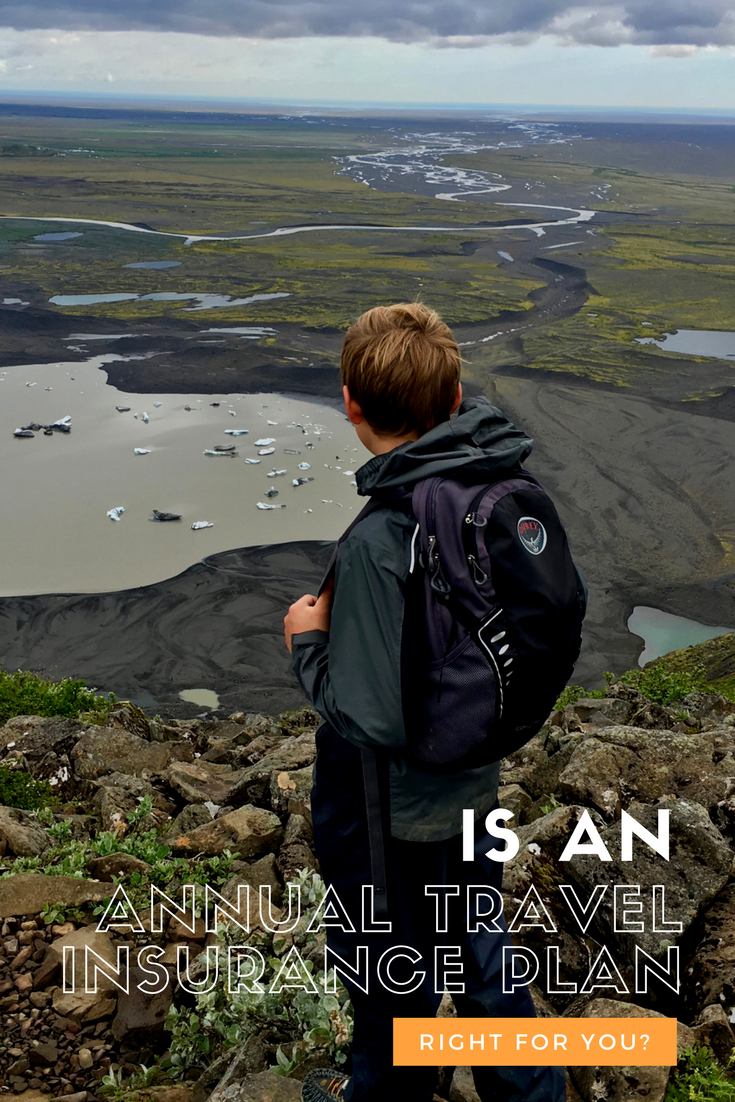Two years ago, just before a trip of a lifetime to Paris and Brussels, we learned of the very unfortunate attack on a Paris nightclub, which of course triggered an extended search across country lines…the exact country lines we planned to cross ourselves on our Christmas holiday. We didn’t cancel our European trip, but we did have to reroute one leg, due to airport closures. As I canceled train tickets and lodging in Brussels and rebought in Florence, Italy, where we decided to go instead, I was very glad I’d purchased travel insurance.
Ditto for the time we booked a cruise to the Caribbean at the edge of hurricane season, when we hiked through Iceland, and again when a snowstorm stranded us in Seattle after a weekend trip to Breckenridge, Colorado. In this case, the cost of a hotel overnight stay wasn’t significant, but I was in a much better mood knowing I’d be recouped for the expense.

We travel hard and we travel often, usually with an adventurous itinerary. Heck yes, we need travel insurance!
Do you need travel insurance as well? I always recommend asking yourself the following questions to determine if you need travel insurance but I now go a step further: consider whether a travel insurance annual plan is right for your family. Unlike single trip plans, which expire as soon as you’re home, annual plans protect a full year’s worth of vacations, with 365 days of international and domestic coverage.
To cover our European trip, we used Allianz Travel, based on recommendations from other travel experts, and I was happily surprised to learn how little it cost me to have peace of mind (which, it turned out, we needed). Truly, it’s just a fraction of the cost all of us already sink into traveling with our families. After learning about Allianz Travel annual plans, I’ve decided that because we travel at least six times per year, we need to upgrade to this level of protection. I don’t want to hassle with purchasing insurance for every trip. And you know it will be the one trip we decide not to protect that turns into a hot mess, right? That’s just Murphy’s Law.
Allianz Travel annual plan comparison (and who needs what):
If you travel as much as we do, you probably need an annual plan, too, but which one? Here’s how Allianz’ annual plans break down, with our recommendations for each.
Annual Basic Plan: This plan does not include trip cancellation protection, which frankly, I think is essential, so it’s not the plan for me. That said, you might have trip cancellation coverage through a credit card you used to book your airfare or lodging, in which case, the basic plan is all you need. It includes emergency medical protection and emergency medical transportation protection (so important overseas where your personal health insurance may not reach), plus trip delay protection, baggage benefits, rental car damage protection, and a 24/7 assistance hotline to help with travel-related emergencies.
Annual Deluxe Plan: The Annual Deluxe plan adds trip cancellation coverage ($2,000 annual maximum), plus everything you get in the basic plan, like trip interruption, emergency medical, lost, stolen or delayed baggage and even rental car damage protection.
Annual Executive Plan: This one is better for the most frequent travelers who need who need higher trip cancellation and interruption limits (tiered levels up to $10,000 annual maximum). Of course, you still get all the other benefits listed above. If you’re planning that epic, once-in-a-lifetime bucket list-worthy trip, you may want to upgrade to this plan.
Lastly, there’s a Premier Plan, which requires a phone call to learn more about, for the absolute greatest coverage with worldwide protection. If you want or need the most extensive concierge service, call about this one.
Note:
Allianz has recently upgraded their annual policies in light of the recent pandemic. Their newly filed policies now include permanent accommodations for epidemics, not only the current COVID-19 but others that may form in the years ahead. This benefit is now offered beyond single trip products and I am sure it will help many travelers.
Learn more about the Epidemic Endorsement Product (EEP) benefits here:
Do you purchase travel insurance? Would you consider an annual plan? Let us know!
Disclosure: This post is written in partnership with Allianz Travel, for the purpose of educating my readers about available plans. All opinion remains my own.








